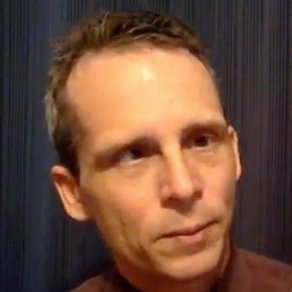But Jesus didn't actually say that...
Blazing Reader,
Recently someone told me that Jesus said, "You should love others MORE than yourself."
"What?" was my instant response. "When did Jesus ever say that?"
What the Book of Matthew actually quotes Jesus saying is: "Thou shalt love thy neighbour AS thyself."
In other words: just as much as yourself.
But I think many people do interpret it as "more than yourself."
Why? Because it makes us feel unworthy to do impressive things that would benefit our own lives. It caters to our fear of failure. It breeds low self-esteem. And it feeds laziness.
As Peter Keating says in Ayn Rand's novel, The Fountainhead:
"Katie, why do they always teach us that it's easy and evil to do what we want and that we need discipline to restrain ourselves? It's the hardest thing in the world — to do what we want. And it takes the greatest kind of courage. I mean, what we really want.... Not as I want to sleep with some woman or get drunk or get my name in the papers. Those things — they're not even desires — they're things people do to escape from desires — because it's such a big responsibility, really to want something."
A couple of weeks ago, my son and I finished reading The Fountainhead. In fact, we read it twice. Or, rather, listened to it twice. We purchased the audiobooks in both English and Spanish (going back and forth every ten minutes). It's a long book at 32 hours (64 with the Spanish translation) but I can honestly say that I was sorry when the final chapter arrived.
I've already read many of Ayn Rand's non-fiction works, so I was expecting this novel to be an awkward didactic story. Instead, her ability to describe scenes, craft unique characters and write dialogue was so well executed that my only regret was having waited so long to read this epic tale.
A big focus in the book is living for one's own self-interest rather than sacrificing one's time and energy to a greater collective. While collectivism is usually looked upon as a sociopolitical issue, Ayn Rand's story tackles it from the point of view of one's soul.
The Fountainhead is about not finding one's self-worth in sacrifice to others. Much like the saying, the best way to help the poor is not to become one of them; the story proposes that the best way to stop the world from falling into depravity and mediocrity is to pursue noble goals and great achievements.
As Howard Roark says in the opening chapter:
"But you see, I have, let's say, sixty years to live. Most of that time will be spent working. I've chosen the work I want to do. If I find no joy in it, then I'm only condemning myself to sixty years of torture. And I can find the joy only if I do my work in the best way possible to me. But the best is a matter of standards — and I set my own standards."
So if you've ever been distracted from personal pursuits by the siren calls of altruism, I'd highly recommend you purchase The Fountainhead and read it a few times. Here's the link: https://blazingpinecone.com/shop/the-fountainhead/
—John C.A. Manley
 John C. A. Manley is the author of Much Ado About Corona: A Dystopian Love Story, the forthcoming All The Humans Are Sleeping and other works of speculative fiction. Get free samples of his stories by becoming a Blazing Pine Cone email subscirber at: https://blazingpinecone.com/subscribe/
John C. A. Manley is the author of Much Ado About Corona: A Dystopian Love Story, the forthcoming All The Humans Are Sleeping and other works of speculative fiction. Get free samples of his stories by becoming a Blazing Pine Cone email subscirber at: https://blazingpinecone.com/subscribe/

